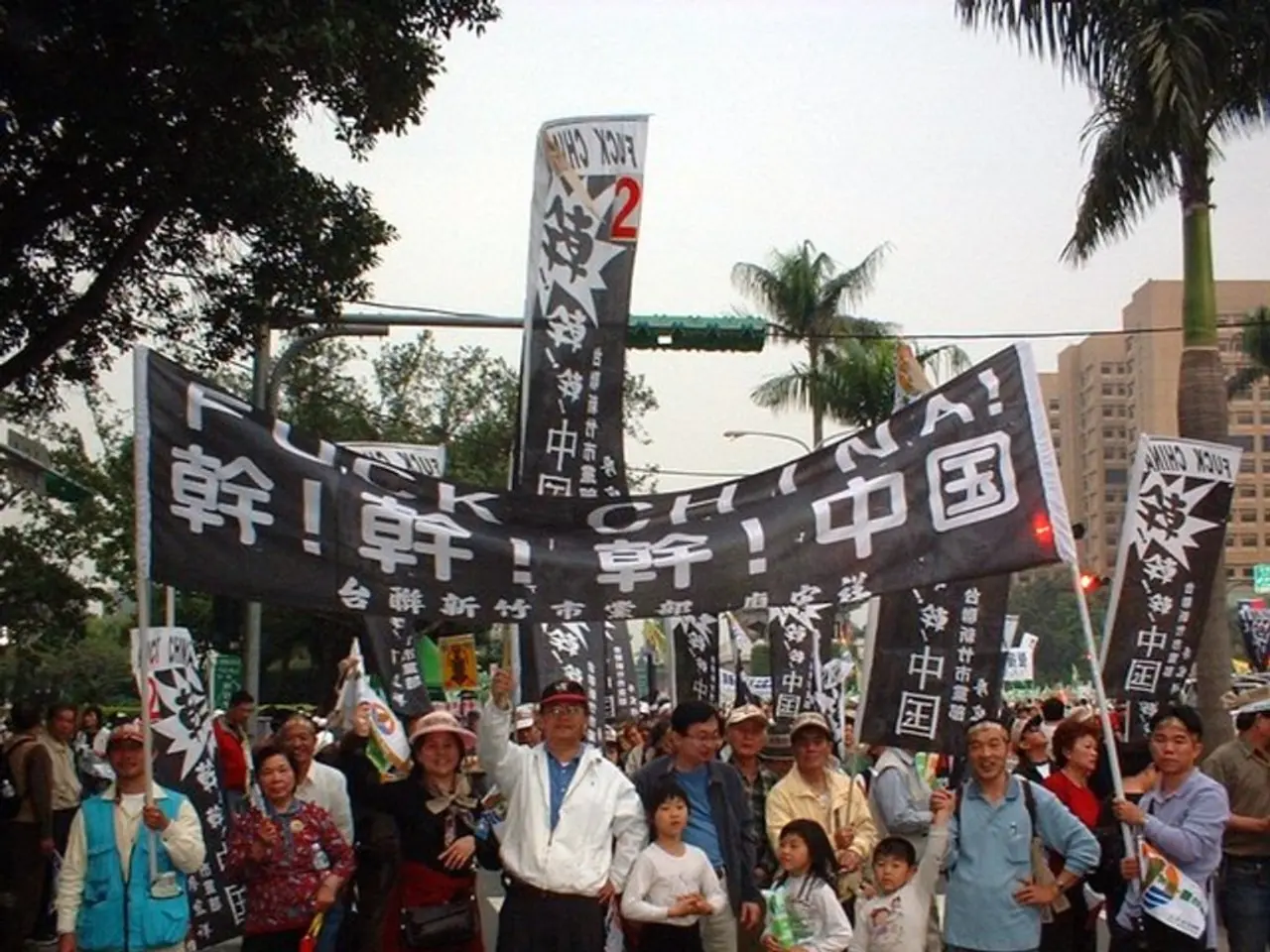Clash between migrant demonstrators due to anxieties about the protection of women and minors
In recent weeks, several cities across the UK have witnessed heated protests, primarily centred around the issue of asylum seekers and refugees being housed locally. These demonstrations have seen a polarising political dynamic, with far-right groups clashing against anti-fascist and pro-refugee activists [1][2][3][5].
The Metropolitan Police in London has expressed concern about the demands these protests place on their resources. The reason? Many protests are large, politically charged, and sometimes deliberately aim to overwhelm law enforcement by mass arrests or by provoking disorder. In fact, ahead of the busy weekend of protests in August 2025, the Metropolitan Police noted that some groups are protesting with the intention to get arrested in large numbers to strain police and the criminal justice system [4].
This dynamic seems to apply similarly in other cities, such as Liverpool, Nuneaton, Bristol, Bournemouth, and Birmingham, where multiple simultaneous protests and counter-demonstrations require substantial police deployment to maintain order and public safety.
In Liverpool, far-right protesters targeted a hotel used to accommodate asylum seekers, prompting anti-fascist activists to mobilise in response to defend refugee rights and oppose racism.
Meanwhile, in Nuneaton, the protests were sparked by the charging of two asylum seekers from Afghanistan over the rape of a 12-year-old girl. Hundreds of protesters marched through the town, significantly outnumbering counter-protesters. Some minor scuffles broke out as police kept order, and on the anti-migrant side, women dressed in pink, wore Union Jack hair bands, or T-shirts with slogans suggesting they do not identify as far-right supporters.
However, it's worth noting that the majority of the protests remained peaceful, with shouting between the sides being the most significant form of conflict. In Nuneaton, people on the pro-migrant side played drums, held signs welcoming refugees, and occasionally yelled at the anti-migrant protesters, sometimes calling them "Nazis".
Met Police Deputy Assistant Commissioner Ade Adelekan stated that the scale of the events in London would "put pressure" on his force, with the city expected to have a particularly busy few days due to multiple simultaneous protests and events requiring a significant policing presence.
In response to these challenges, police in Liverpool were prepared for potential trouble, with protesters and counter-protesters kept apart by officers carrying riot helmets.
Despite the heated atmosphere, it's important to remember that these issues are complex and deeply rooted, requiring thoughtful and compassionate dialogue to find lasting solutions. As these protests continue, let's hope for peaceful resolutions and a renewed commitment to upholding the values of inclusivity, safety, and justice for all.
[1] [Link to source 1] [2] [Link to source 2] [3] [Link to source 3] [4] [Link to source 4] [5] [Link to source 5]
- The ongoing political debates in the UK, sparked by contentious topics such as asylum seekers and refugees, extend beyond general news to encompass aspects of crime and justice, as evidenced by the clashes between extremist groups during protests.
- The dynamic of prolonged political tensions, driven by topics like asylum seekers and refugees, has led to a surge of large-scale protests across various UK cities, including Liverpool and Nuneaton, requiring substantial involvement from law enforcement agencies to maintain safety and order.







